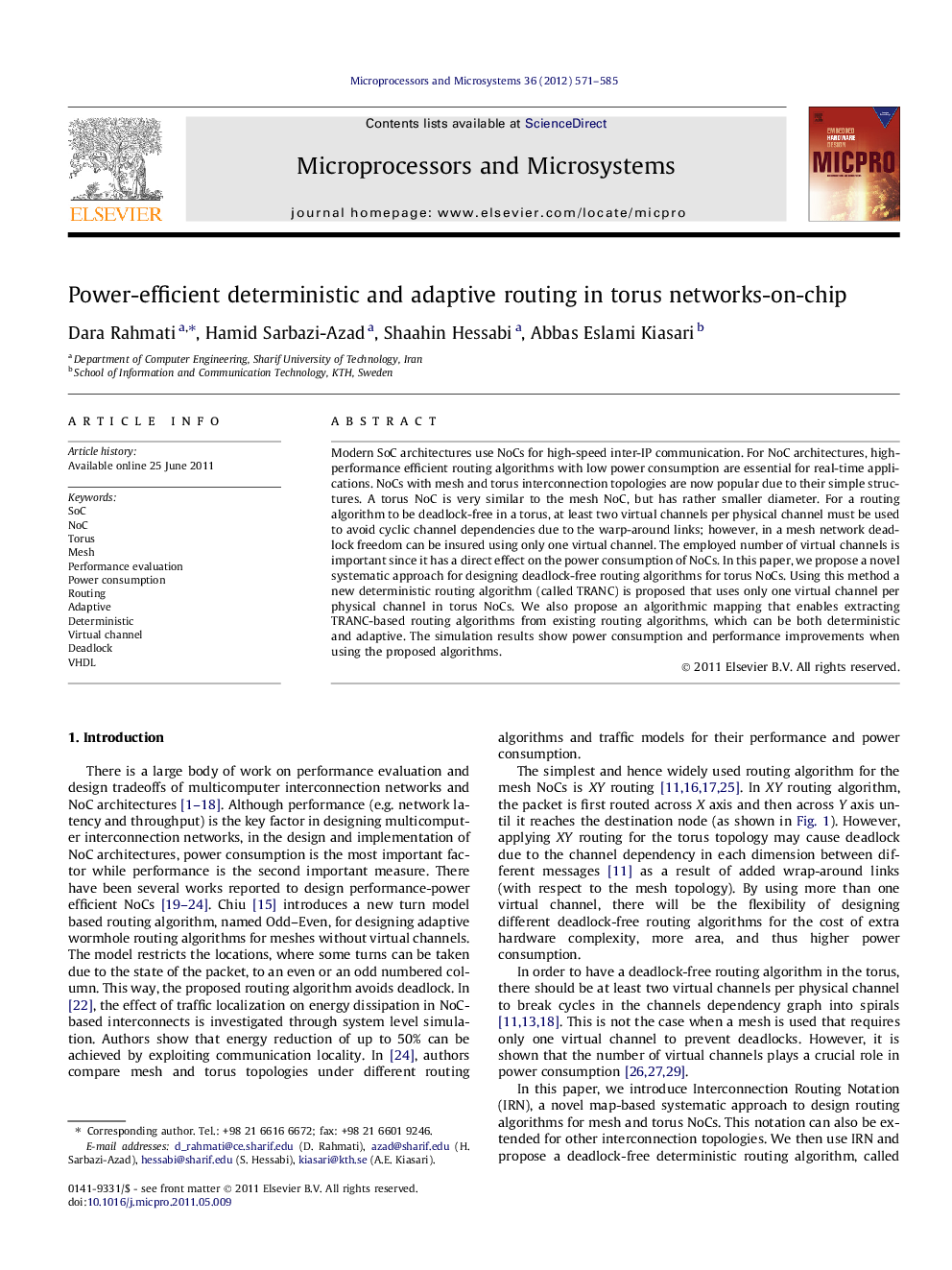| Article ID | Journal | Published Year | Pages | File Type |
|---|---|---|---|---|
| 463062 | Microprocessors and Microsystems | 2012 | 15 Pages |
Modern SoC architectures use NoCs for high-speed inter-IP communication. For NoC architectures, high-performance efficient routing algorithms with low power consumption are essential for real-time applications. NoCs with mesh and torus interconnection topologies are now popular due to their simple structures. A torus NoC is very similar to the mesh NoC, but has rather smaller diameter. For a routing algorithm to be deadlock-free in a torus, at least two virtual channels per physical channel must be used to avoid cyclic channel dependencies due to the warp-around links; however, in a mesh network deadlock freedom can be insured using only one virtual channel. The employed number of virtual channels is important since it has a direct effect on the power consumption of NoCs. In this paper, we propose a novel systematic approach for designing deadlock-free routing algorithms for torus NoCs. Using this method a new deterministic routing algorithm (called TRANC) is proposed that uses only one virtual channel per physical channel in torus NoCs. We also propose an algorithmic mapping that enables extracting TRANC-based routing algorithms from existing routing algorithms, which can be both deterministic and adaptive. The simulation results show power consumption and performance improvements when using the proposed algorithms.
► Torus and mesh Network-on-Chip (NoC) are used for high-speed inter-IP communication. ► High-performance and power-efficient routing algorithms are essential in NoCs. ► We propose a competent routing algorithm for torus by reducing the virtual channels. ► A novel map based and systematic approach is used to design and extend the algorithm. ► Various deterministic and adaptive routings can be extracted from the base algorithm.
